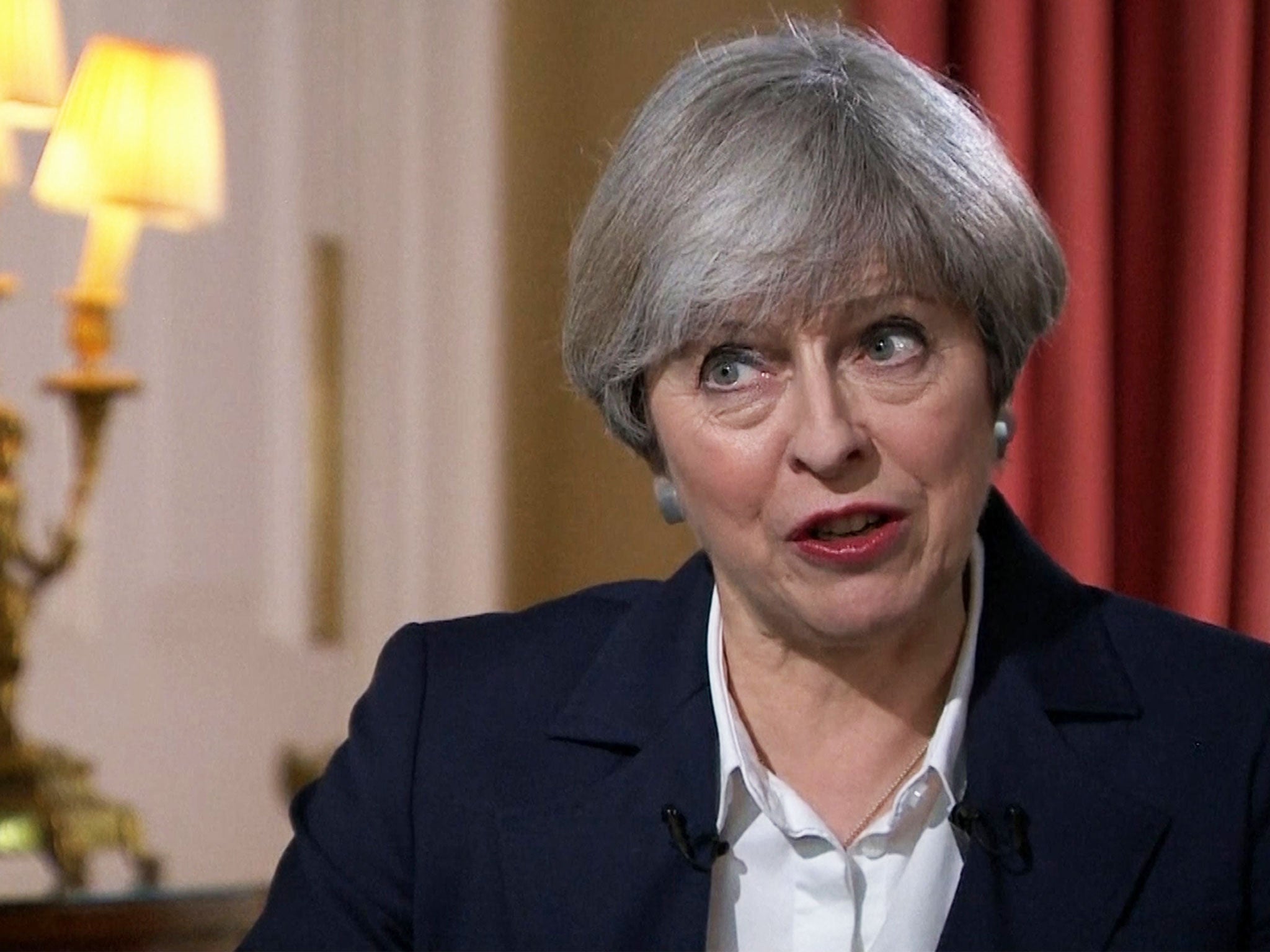As Theresa May flies out to Saudi Arabia, we should beware of Britain's new Brexit allies
In the last six months, Liam Fox has been on a whistle-stop tour of authoritarian regimes


Your support helps us to tell the story
From reproductive rights to climate change to Big Tech, The Independent is on the ground when the story is developing. Whether it's investigating the financials of Elon Musk's pro-Trump PAC or producing our latest documentary, 'The A Word', which shines a light on the American women fighting for reproductive rights, we know how important it is to parse out the facts from the messaging.
At such a critical moment in US history, we need reporters on the ground. Your donation allows us to keep sending journalists to speak to both sides of the story.
The Independent is trusted by Americans across the entire political spectrum. And unlike many other quality news outlets, we choose not to lock Americans out of our reporting and analysis with paywalls. We believe quality journalism should be available to everyone, paid for by those who can afford it.
Your support makes all the difference.It’s been three months since Theresa May called for Brexit to be the birth of “a truly global Britain” and we’re starting to see what that actually means. Over recent months, we have seen Government ministers amassing huge numbers of air miles in a bid to form new trading relationships and strengthen older ones.
This week Theresa May is making her first international visits since triggering Article 50 – and unfortunately it tells us a lot about where she sees the UK’s post-Brexit future lying. Today she flies into Jordan, and tomorrow she’s off to Riyadh, Saudi Arabia, for a visit that she hopes will “herald a further intensification” in relations between the UK and the two countries.
The timing is certainly controversial. Last week marked the second anniversary of the terrible bombardment Saudi forces have led against Yemen. UK arms have been central to the destruction, with over £3 billion worth of military equipment having been licensed to the Saudi regime since the bombardment began.
The impact has been deadly, with over 10,000 having been killed and 17 million people being left food-insecure and in urgent need of humanitarian assistance. Research by UNICEF shows that the conflict has created a situation in which a child is dying of preventable causes every 10 minutes.
Despite the horrific backdrop, Whitehall is working with BAE Systems to sell even more of the same fighter jets that are currently flying over Yemen.
This is not the first controversial state visit May has made since taking office. Last December she flew out to Bahrain for the Gulf Cooperation Council meeting, in which she used Brexit as a pretext for a to call to “go even further” in working with the Gulf dictatorships.
In a similar vein, she began 2017 with a trip out to Ankara, Turkey, where President Erdogan has spent much of his tenure waging a terrible war on civil liberties and free media. She smiled, posed for photos and secured an agreement for a £100m fighter jet deal.
She used the visit as an opportunity to stress her “delight” about the arms sale, but didn’t say a word about the 125,000 state workers who have been purged from their jobs, the 40,000 who have been arrested or the serious allegations of police torture and sexual violence that Amnesty International has brought to light.
Her omission was explored by the Foreign Affairs Committee, which noted: “The UK risks being perceived as de-prioritising its concern for human rights in its drive to establish a 'strategic' relationship with Turkey.”
It’s not just May. Other ministers have spent a lot of time on the road too. In the last six months, the International Trade Secretary, Liam Fox, has been on a whistle-stop tour of authoritarian regimes, having managed to fit in visits to Oman, Bahrain, UAE and Kuwait. Not once did he mention the appalling human rights records of the regimes that were hosting him.
There is little doubt that arms sales will have been a focus of these visits too, with every one of those countries appearing on the UK government’s list of “priority markets” for arms sales. The Middle East may be a small region, but it already accounts for two thirds of UK arms exports.
We have already seen the crass and insensitive allusions to Brexit as some kind of “Empire 2.0” but with a two-year countdown underway, May will be looking to prioritise quick deals and big headlines. That’s one reason why the Gulf States are said to be preparing “signature-ready” trade deals to come into effect as soon as the UK has formally left the EU.
What are the chances that May and her colleagues will push for meaningful reform at the same time as they are negotiating fast and desperate deals?
The government argues that “an even deeper partnership” will allow the UK to have a greater influence on human rights, but this is the exact opposite of what has happened to date.
Not only has the UK’s relationship with Saudi Arabia and other oppressors seen successive prime ministers turning a blind eye to the abuses taking place, but it has seen the UK compromise its own domestic policies.
Over recent years we have seen the degrading spectacles of Tony Blair intervening to stop a major corruption investigation into arms exports to Saudi and David Cameron touring the Middle East in search of arms sales. Through the good work of journalists, we even know that UK civil servants lobbied for Saudi Arabia to sit on the UN Human Rights Council, a move that Theresa May has refused to withdraw.
The images that come out from May’s time in Riyadh will be projected around the world. The message they send to the Saudi government will be one of unwavering and uncritical support, but the message they send to those being abused in Saudi prisons or being bombed in Yemen will be a very different one. To them it will say that the UK regards their suffering as a price to pay to continue selling arms.
Whatever our views on Brexit, one thing Remainers and Brexiteers can hopefully agree is that the UK should use its influence to leave as positive a global footprint as possible. Is “global Britain” going to be a country that uses its influence to promote human rights and democracy, or will it be one that prioritises arms sales at all costs and sells off even more of its foreign policy to dictatorships like Saudi Arabia?
Andrew Smith is a spokesperson for Campaign Against Arms Trade (CAAT). You can follow CAAT at @CAATuk
Join our commenting forum
Join thought-provoking conversations, follow other Independent readers and see their replies
Comments